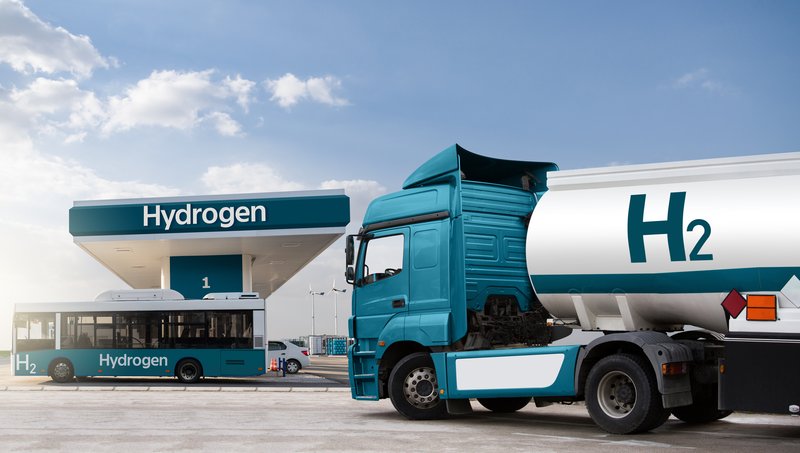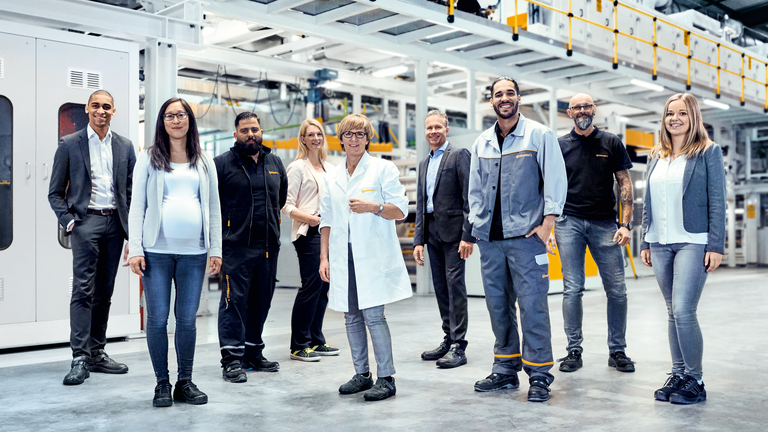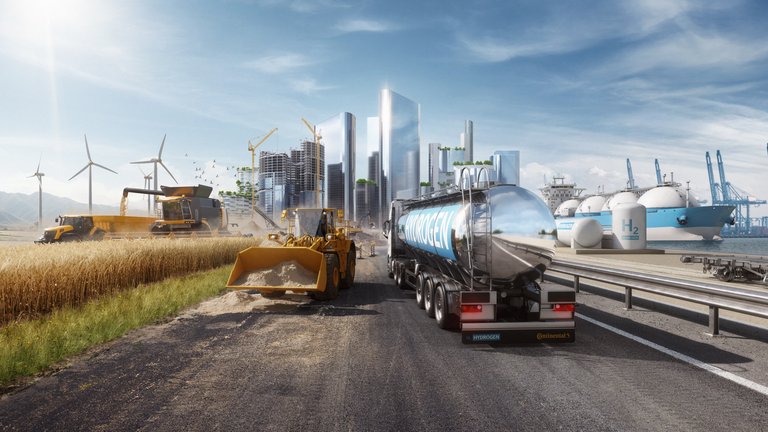Industrial Solutions
Driven by technology and sustainability, the Industrial Solutions division is undergoing seismic change. As a sustainable supplier to a wide range of industries, we are dedicated to developing material-driven solutions that address the challenges of the world. The shift towards a circular economy and sustainable practices, as well as the development of new and advanced materials such as nanomaterials, biomaterials, and smart materials, are challenging the status quo. Continental is at the forefront of the transition to electric cars and hydrogen-powered commercial vehicles, as well as the fundamental change our customers are undergoing in the agricultural industry.
Creating Sustainable Transport Options
Together, we are working on solutions to manage the shift from fossil fuels to green hydrogen. For example, we are developing materials for the hydrogen value chain, for connector components, and for fluid transport in fuel cell engines. For battery-powered electric vehicles, we are focusing on battery cooling systems and other thermal management solutions. In addition to the challenges of making farms smarter and more efficient, there is also a strong focus on sustainability. Through sustainable materials in agricultural solutions and intelligent material solutions, we contribute to more durable, sustainable machines, predictive maintenance and efficient harvesting and conveying facilities.
Discover Attractive Career Opportunities in the Field Industrial Solutions
Whether materials developers, mixers, process developers, chemists, product developers, laboratory technicians, or textile engineers – Continental offers all roles and responsibilities related to the materials development of plastics, rubber, and polymers for its products. In this area, it is important to define tailor-made formulas in tandem with customers and develop them in such a way that they can then be produced to high quality standards. The prerequisites for this highly technical field lie in a broad knowledge of chemistry, process engineering, materials development, textile technology, or similar disciplines, combined with a clear understanding of the processes and challenges of an industrial setting.



